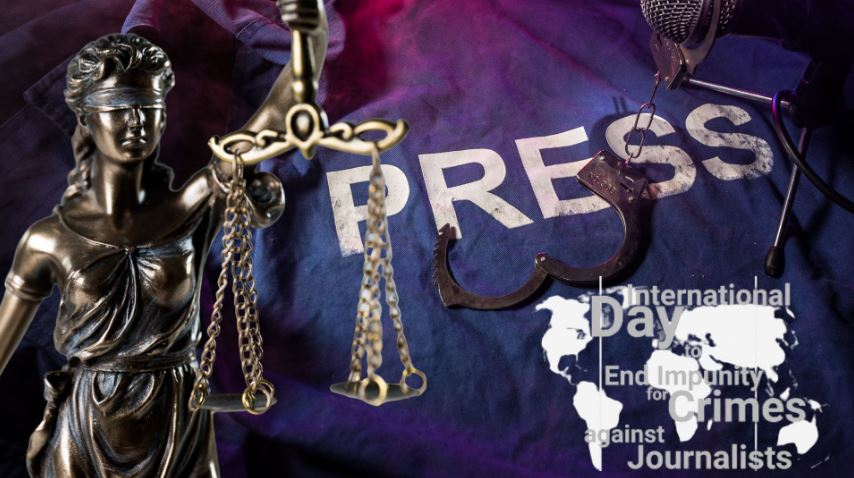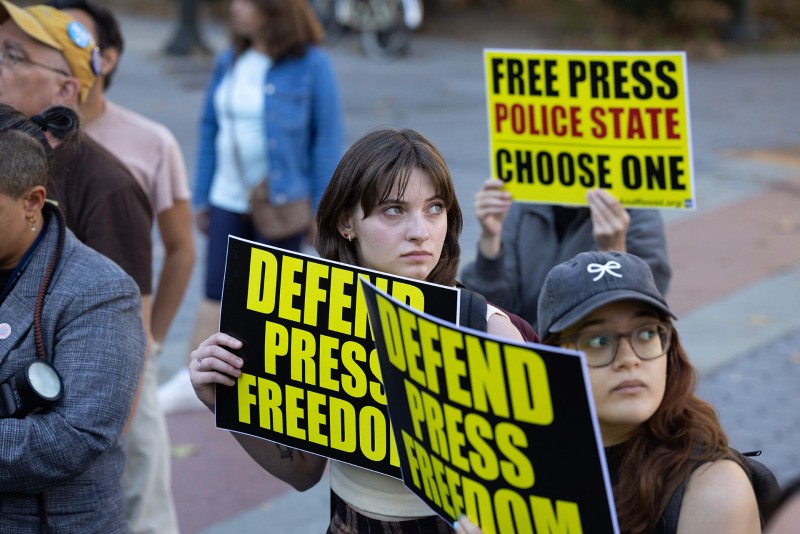
Robert Telles was convicted of stabbing Jeff German of Las Vegas Review-Journal who had written critical articles
October 17, 2024
UK Police Raid Journalist’s Home in Alarming Press Freedom Breach
October 18, 2024October 16, 2024 – General –
Governments worldwide have begun weaponizing financial legislation—tax audits, anti‑money‑laundering rules, and defamation statutes—to intimidate and control independent media. A forthcoming UNESCO report, along with research by WAN‑IFRA and the Inter American Press Association, spotlights this emerging tactic used to suppress investigative journalism through economic coercion.
These financial pressures often manifest as sudden, unexplained tax investigations, hefty fines following critical reporting, forced dissolution of nonprofit media, or freezing of bank accounts. Such actions drive newsrooms into defensive modes: reassigning editorial budgets to legal teams, culling investigative staff, or abandoning coverage of corruption and human rights abuses altogether. As WAN‑IFRA notes, commitments to financial sustainability cannot flourish “free from government interference” when financial oversight becomes a punitive weapon.
A chilling example comes from Zimbabwe, where the award‑winning editor Faith Zaba of the Zimbabwe Independent faces criminal charges after publishing a satirical critique of President Mnangagwa. In June 2025, WAN‑IFRA publicly condemned the government’s move to detain Zaba under defamation rules, warning that it chills editorial freedom under the guise of financial and reputational regulation.
Behind these economic tactics is a deeper strategy: bypass formal media suppression laws and weaponize financial oversight in a gray legal zone, making it harder to challenge and easier for states to claim legitimacy. This economic dimension of media repression is especially effective in countries where traditional legal protections for press freedom are weak or ignored.
What makes this trend especially dangerous is its subtlety. While overt censorship via arrests or media shutdowns draws international condemnation, financial repression wears the cloak of legal normalcy. It often avoids immediate media backlash, yet its cumulative effect undercuts newsroom independence and undermines public trust in journalism, threatening democracies from within.
As the UNESCO‑WAN‑IFRA report warns, saving journalism today requires more than legal reform; it demands protection from financial repression. Transparent financial oversight, independent auditing for media entities, and international safeguards for nonprofit journalism are crucial to ensure that watchdogs can continue monitoring power without fear of economic reprisal.
Reference –
Alert: Reports spotlight financial laws being used to silence journalists




